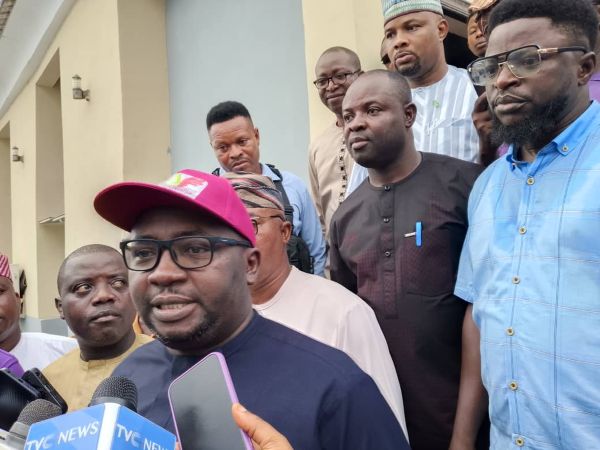
IBADAN — In a move aimed at stimulating microenterprise growth and cushioning economic hardship, Nigeria’s Minister of Power, Chief Adebayo Adelabu, has disbursed ₦100 million in business grants to traders, artisans, and farmers across Oyo State.
The initiative — themed “2025 Mega Empowerment and Economic Relief Programme Series” — took place at the Bayo Adelabu Foundation House in Ibadan, drawing hundreds of beneficiaries from the state’s 33 local government areas.
Stimulating Grassroots Growth Through Economic Inclusion
Adelabu, a former Deputy Governor of the Central Bank of Nigeria (CBN), said the intervention was designed to strengthen small-scale businesses, enhance productivity, and drive local wealth creation amid Nigeria’s current economic challenges.
“This empowerment is not about politics. It is my way of giving back — a thanksgiving for God’s grace and a gesture of gratitude to society,” he said.
He noted that the initiative was part of his long-term vision to promote economic inclusion and provide lifelines to thousands of low-income earners struggling with inflation and high operating costs.
Tackling Inflation Pressure on SMEs and Local Producers
With inflation squeezing purchasing power and increasing production costs nationwide, the Power Minister emphasized the need for targeted fiscal relief for Nigeria’s informal economy — particularly traders, artisans, and smallholder farmers who represent over 65% of the state’s active workforce.
According to Adelabu, such interventions are essential to stabilize livelihoods, sustain enterprise productivity, and prevent mass business closures at the grassroots level.
He reaffirmed his confidence in the economic reform agenda of President Bola Tinubu, urging Nigerians to remain patient as the administration’s structural reforms begin to take effect.
“President Tinubu is God-sent to Nigeria. Though things are tough now, the sacrifices Nigerians are making will yield prosperity in due time,” Adelabu assured.
Expert Endorsements and Calls for Accountability
Speaking at the event, financial expert Olutayo Akinleye commended the initiative, describing it as a “direct stimulus for grassroots resilience and microeconomic stability.”
He urged beneficiaries to invest the grants prudently and avoid wasteful spending.
“This type of empowerment is more than philanthropy — it’s a local economic development strategy. When small businesses thrive, communities prosper,” he said.
Beneficiaries expressed gratitude to Adebayo Adelabu, noting that the financial assistance would revive their businesses, increase household income, and stimulate local employment.
Beyond Power Sector Performance: A Test of Grassroots Impact
Although Adelabu’s tenure in the power sector has faced public scrutiny over electricity challenges, the empowerment scheme highlights his focus on socio-economic recovery and inclusive growth.
Analysts argue that such grassroots interventions may redefine his public perception — balancing technical performance with community impact.
For Oyo’s traders and artisans, the ₦100 million empowerment push may not solve every economic challenge, but it represents a renewed hope for microenterprise revival and an important model for bottom-up economic empowerment in Nigeria.












